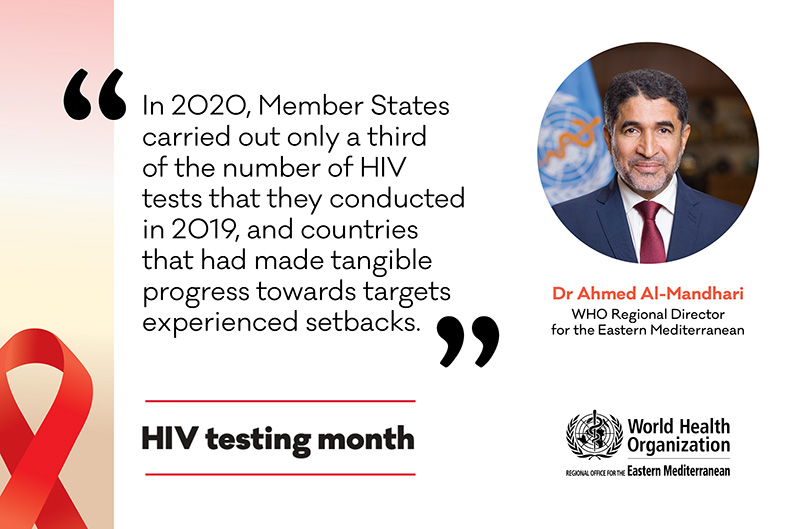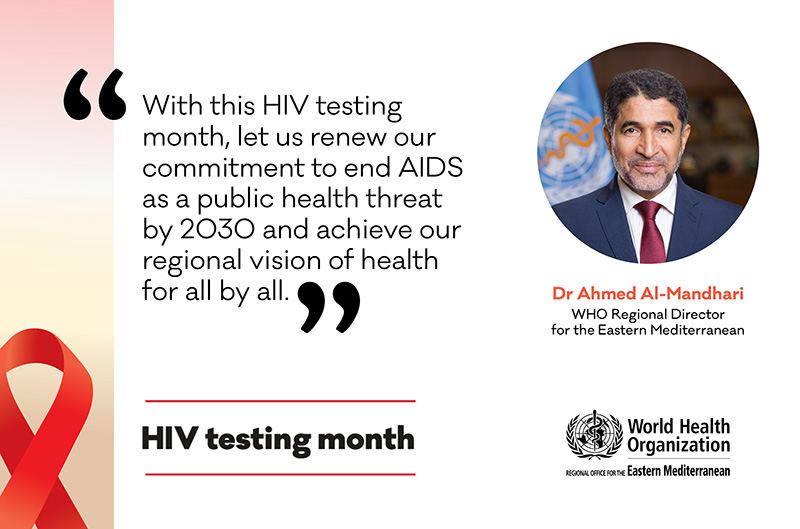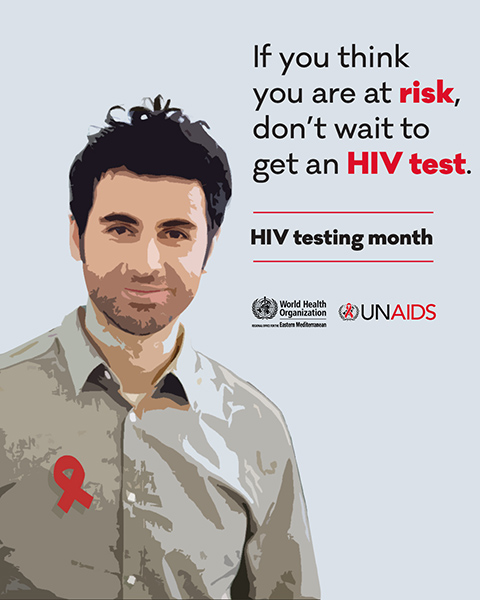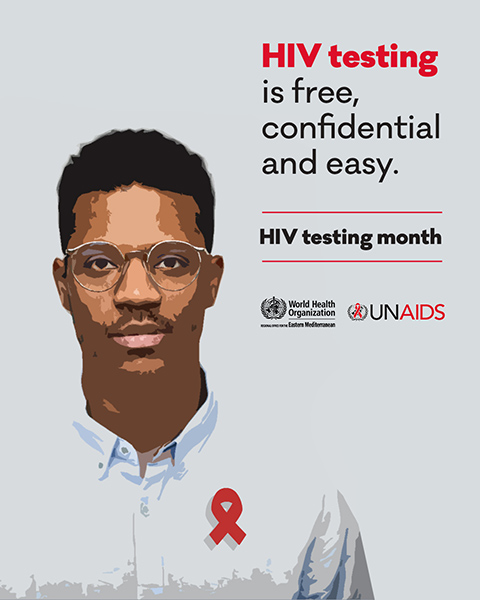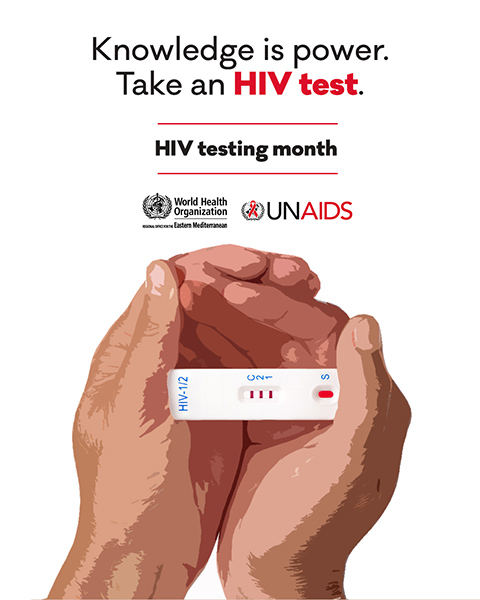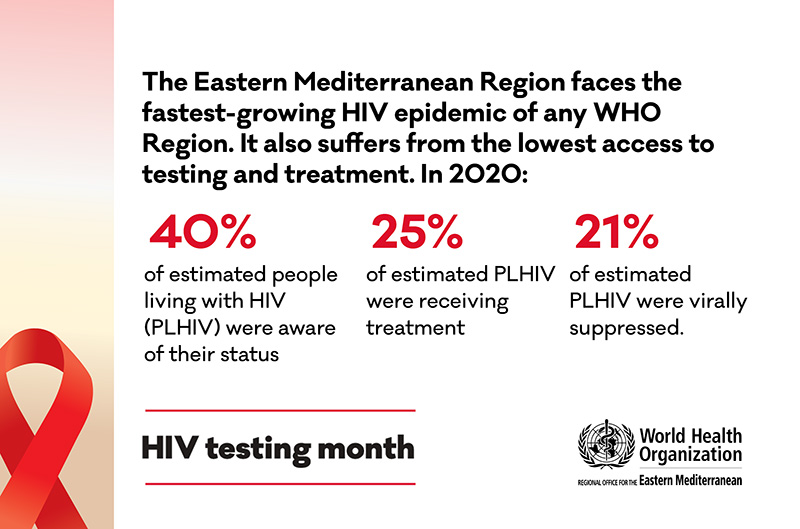World AIDS Day 2021
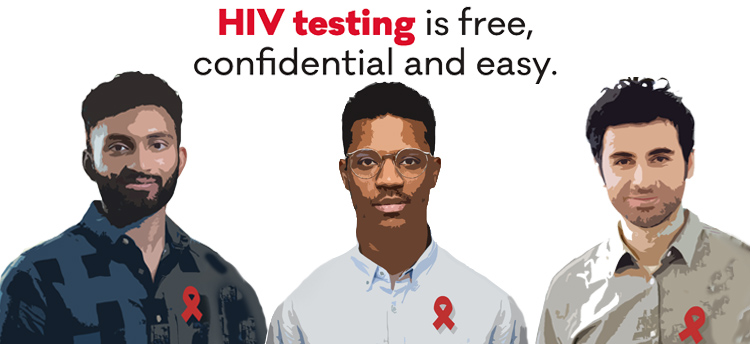
Background| Objectives|Key messages|Regional epidemiological update| Campaign materials
Despite progress, countries in WHO’s Eastern Mediterranean Region need to address challenges to improve the regional HIV response. In 2020, WHO/UNAIDS estimated that only 40% of people living with HIV (PLHIV) in the Region were diagnosed and only 25% were receiving continuous treatment. The Region remains the weakest performing region of all WHO regions and is falling short of global targets.
In 2020 and 2021, the impact of the COVID-19 pandemic has disrupted the delivery of HIV services, including prevention, testing and treatment services, caused a shortage of supplies and diverted resources. In 2020, the number of HIV tests conducted in the Region represented only about a third of the number of tests conducted in 2019.
HIV programmes need to get back on track to make progress towards the 95-95-95 targets by 2030 and recover from the disruption to HIV services brought about by the pandemic.
The 2021 campaign is focusing on leveraging social media platforms, such as. Facebook, to send targeted messages to mobilize people at risk of HIV and PLHIV who are undiagnosed to seek testing services in a safe and sustained manner.
HIV testing centres in the Region
People at risk of HIV should seek HIV testing. Testing is free, confidential and easy. It helps people make informed decisions. Free treatment is available for people who test positive and enables individuals to live a healthy life. Prevention options are also available to help people remain HIV negative.
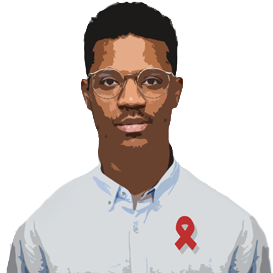
HIV testing is free, confidential and easy.
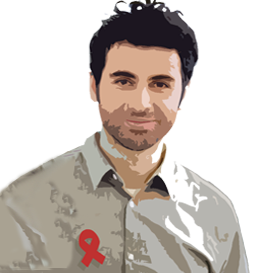
If you think you are at risk, don't wait to get an HIV test.
There is a need for the greater engagement of HIV programmes and civil society organizations to increase the demand for HIV testing and restore the provision of HIV services to pre-pandemic levels.
In 2020:
HIV prevalence in the Eastern Mediterranean Region was 0.1%, which can be characterized as low epidemic. Global prevalence was 0.7%.
the estimated number of PLHIV reached 420 000 compared to 32 000 in 2015.
an estimated 110 000 [100 000–110 000] people were on antiretroviral therapy (25% ART coverage).
an estimated 41 000 [35 000–60 000] people became newly infected with HIV.
new infections among all ages remained stable at 0.06 [0.05–0.09] out of 1000 uninfected population.
17 000 [14 000–24 000] deaths were attributed to HIV-related causes, an increase of around 1.2% from 2019.
The majority of countries in the Region have a prevalence < 0.1% in the general population and are characterized by concentrated epidemics among key populations.
Djibouti has the highest HIV prevalence among the general population at 0.8%, followed by Sudan and Pakistan at 0.2%.
Pakistan, Sudan and Islamic Republic of Iran constitute 73% of total HIV infections in the Region.
Pakistan contributes to 61% of new HIV infections in the Region.
The impact of COVID-19 on HIV services
Qualitative analysis for HIV service disruption at the beginning of the COVID-19 pandemic showed that services were partially disrupted because of lockdown measures, overwhelmed health systems and the evolvement of the cases .
Analysis of HIV case reporting data showed that in 2020 the number of HIV tests conducted was only one third of the number of tests conducted in 2019.
Cascade of care and regional progress towards global targets
Regional Director's message and quotes
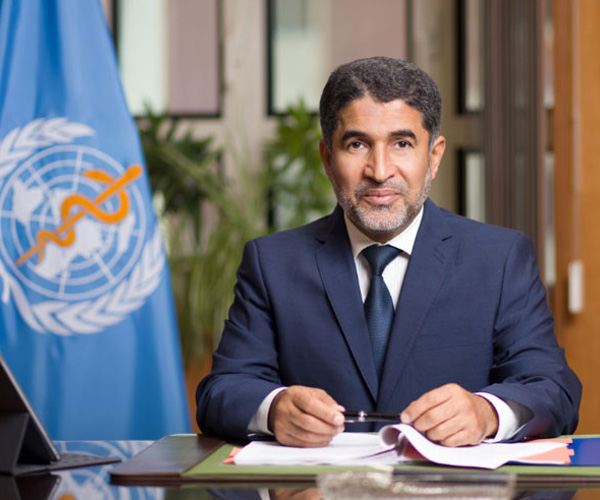
I call on ministries of health and civil society organizations to facilitate testing so that people can know their HIV status. WHO stands ready to assist you. With this HIV testing month, let us renew our commitment to end AIDS as a public health threat by 2030 and achieve our regional vision of health for all by all.








